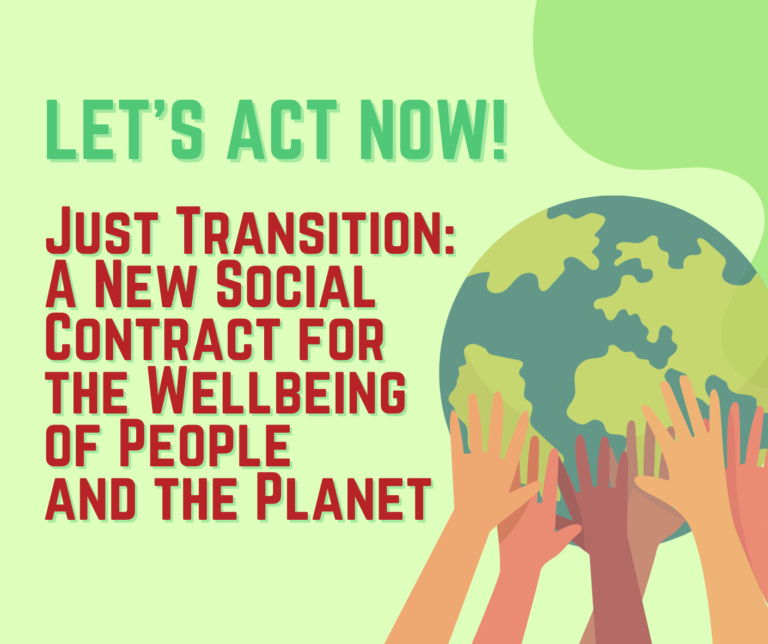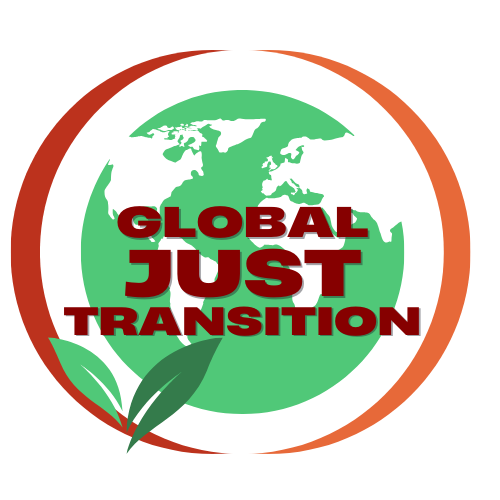For people and the planet: Progressive forces & Ministers join forces and call for a Just Transition in Europe and beyond
July 20, 2023
As part of their mission to advance a socially and environmentally Just Transition in Europe and beyond, FEPS, SOLIDAR, Movimiento por la Paz, el Desarme y la Libertad (MPDL) and Asamblea de Cooperación por la Paz (ACPP) hosted an event on 11 July 2023 in Valladolid, Spain that gathered Progressive stakeholders from Spain, other EU Member States and the European level for a timely exchange of views on acting together for a Just Transition.
With less than one year to the European Parliament elections, now is the time for all forces willing to achieve a liveable and sustainable future to come together, put Just Transition at the centre of the political debate and make it a political priority. The Spanish and Belgian Presidencies of the Council of the EU in 2023 and 2024 have the potential to give a significant impulse to a Just Transition, ensuring that people and social justice are at the heart of climate and environmental action. Teresa Ribera, Third Vice-President and Minister for Ecological Transition and Demographic Challenge of Spain, and Zakia Khattabi, Belgium’s Federal Minister of Climate, Environment, Sustainable Development and the Green Deal, joined our event and committed to ensuring a Just Transition during their countries’ Presidencies.
At the event, key actors working for a Just Transition at the local, national, and European level came together to outline a common vision for a Just Transition and share their best practices and outlook for the future.
Laura Martin Murrillo, Director of the Just Transition Institute, presented the main lessons learned from the Spanish 2019 Just Transition Strategy. According to her, the Just Transition in Spain would create a number of jobs similar to those of the plants to be closed, through agreements reached with workers, synergies between environment and employment, diversification of SMEs, and the close partnerships with municipalities.
Similarly, the Belgian Presidency of the Council of the European Union that starts from January 2024, aims to advance a Just Transition in Europe by adopting transversal policies – linked to employment, finance, energy, gender, etc – that sustain basic needs such as food, shelter, care and mobility. Anaïs De Munck, Advisor Green Deal Unit in the Cabinet of Belgian Federal Minister Zakia Khattabi, presented the main priorities of this Presidency.
Miguel Costa Matos, Member of the Portuguese Parliament for the Partido Socialista, emitted recommendations for a Just Transition in Portugal: stop subsiding fossil fuels, accelerate the deployment of renewables, and build a robust financial architecture and governance. These efforts on the ground should be supported by an enabling framework at the European level.
Frank Siebern-Thomas, Head of Fair, Green, and Digital Transitions, Research Unit, DG Employment, Social Affairs and Inclusion, European Commission, underlined the need to strengthen Just Transition commitments and policies at all levels, including at the global level – for example, by ensuring the implementation of the European Pillar of Social Rights, or the transition towards a wellbeing economy to live well within planetary boundaries.

Close involvement and cooperation with civil society is crucial to ensure that the green transition is fair and supported by citizens.
According to Laura de Bonfils, Secretary General of Social Platform, a more social Europe is an opportunity to put in place ambitious environmental and climate policies accompanied by robust social policies that protect marginalized people and address the root causes of inequalities. For instance, policymakers should stop the attempt to return to austerity, shift towards a well-being economy beyond GDP measures, and create strong social protection floors for all.
Ludovic Voet, Confederal Secretary at the European Trade Union Confederation (ETUC), emphasised the role of trade unions in a Just Transition to increase workers’ protection and workers’ rights. And this should go hand in hand with increasing our climate targets, as well as the protection and restoration of biodiversity, reminded Eva Saldaña Buenache, Executive Director of Greenpeace Spain. Finally, the green transition cannot be fair if it disproportionately and negatively affects the Global South. Pepe Postigo, Board member of La Coordinadora, The Spanish Development NGO Platform, advocated for a strong external dimension of European climate and social policies so that the costs and benefits of the Just Transition are evenly distributed.
“A socially Just ecological Transition has made its way to become a transformative force which unites us today”, said Zakia Khattabi, Belgium’s Federal Minister of Climate, Environment, Sustainable Development and the Green Deal. She emphasized that the climate emergency we are currently experiencing must not be a double punishment for the most vulnerable but to the contrary the trigger for a “necessary transformation of our societies a lever in the fight against inequality”. This means strengthening collective solidarity by rethinking our welfare states model and our social protection systems. As part of the Belgian Presidency of the European Council, her work will focus on making concrete policy proposals for the next strategic agenda of the European Commission, tasking the European Economic and Social Committee to give an opinion on a comprehensive Just Transition policy framework, and organizing a European Conference on Just Transition next year. With less than a year to go before the next European elections, large and ambitious alliances are needed more than ever – the only way forward to deliver a sustainable, democratic, and social Europe.
Teresa Ribera, Third Vice-President and Minister for Ecological Transition and Demographic Challenge of Spain, stressed that if we want to transform our energy model and advance in decarbonization, we must also think about the workers affected by the ecological transition. In that regard, she reiterated her commitment to work towards a green transition that, to be viable, is fair to workers and consumers. Referring to the current European political context, she also warned against “the fear of uncertainty, which generates a dangerous reaction, and those who manipulate this fear to create paralysis”.
A Call to Action endorsed by over 30 European and Spanish organisations and addressed to national and EU-level decisionmakers was presented to Ministers Ribera and Khattabi.
Read the Call to Action in English and Spanish.
Find further information about it here.





